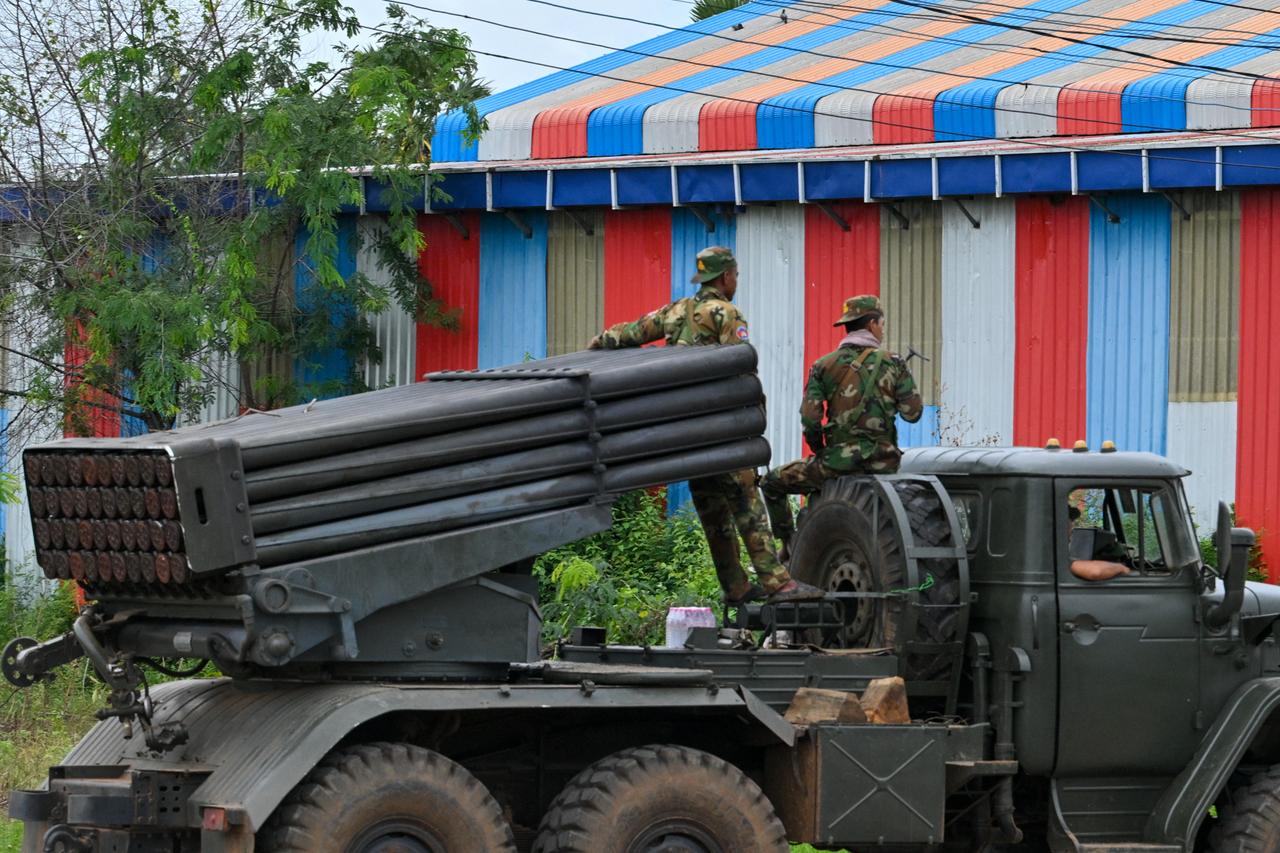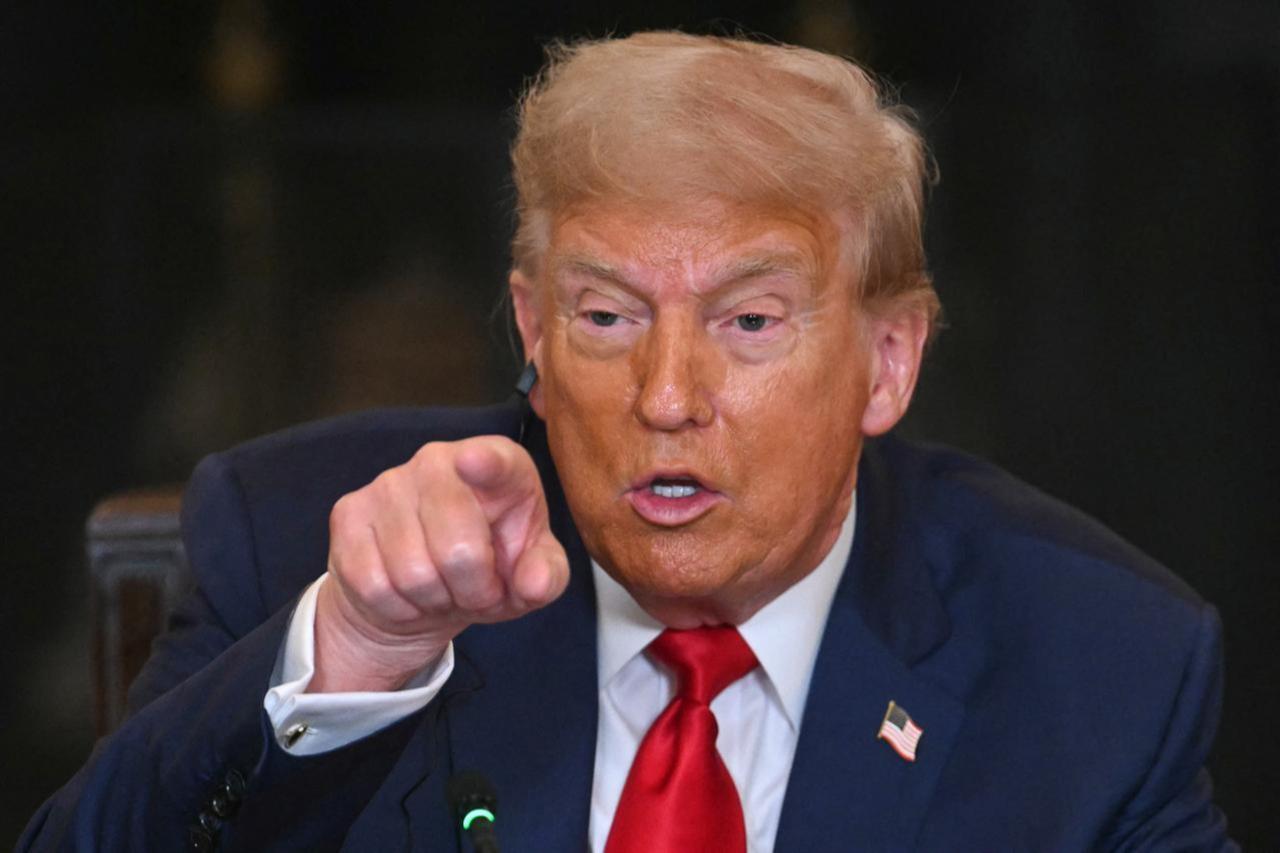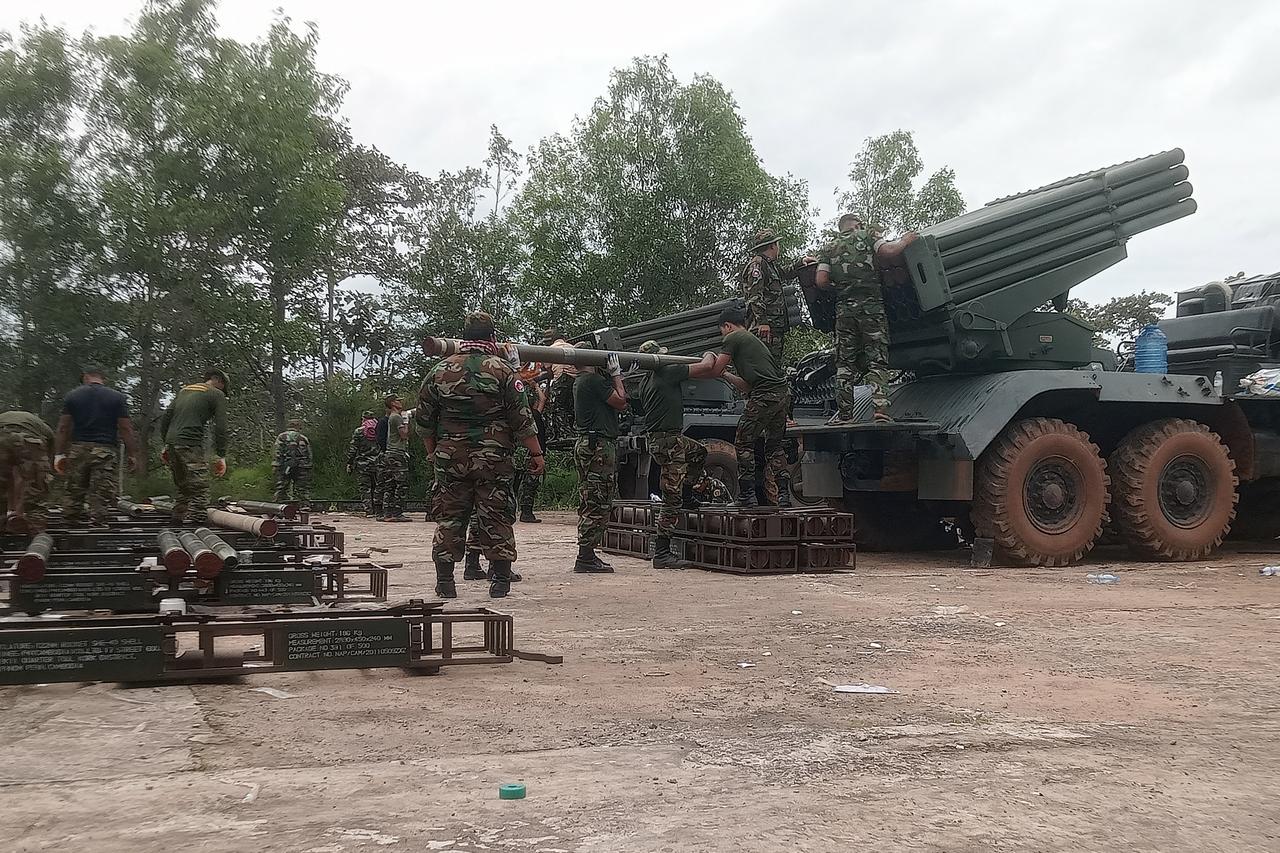
Thailand said Saturday it has agreed "in principle" to a ceasefire with Cambodia following a phone call between Acting Prime Minister Phumtham Wechayachai and U.S. President Donald Trump, marking a potential breakthrough in the three-day border conflict that has claimed dozens of lives and displaced thousands of civilians.
The Thai Foreign Ministry said Phumtham thanked Trump for his concern about the fighting, which has killed at least 32 people from both countries since Thursday, and expressed Thailand's support for ending hostilities while seeking "sincere intention" from Cambodia to pursue peace.
The acting prime minister asked Trump to relay Thailand's request to Cambodia for immediate talks to establish cease-fire mechanisms and work toward a peaceful resolution. Thailand wants to "convene a bilateral dialogue as soon as possible," according to the ministry statement.

Trump, currently in Scotland, announced on Truth Social that both countries had agreed to begin ceasefire negotiations after speaking with their leaders during separate phone conversations.
"Both parties are looking for an immediate cease-fire and peace... They have agreed to immediately meet and quickly work out a cease-fire and, ultimately, PEACE," Trump wrote on the social media platform.
The announcement came as the conflict entered its third day with continued military escalation despite mounting international pressure for restraint.
Thai fighter jets struck military sites in the Phu Ma Kua area and the Ta Muen Thom temple on Saturday, according to Thai news outlet The Nation.
Cambodia confirmed the attacks and said it carried out retaliatory strikes, the Khmer Times reported.
Thailand's Royal Thai Navy deployed four vessels Saturday to support ground forces under "Trat Strike 1" operations against Cambodian positions along three border points, The Nation daily reported.
The naval deployment came after Cambodian forces reportedly expanded their positions in the disputed area.
Thai forces claimed control of a strategic hilltop located 2.8 kilometers (1.73 miles) from the historic Preah Vihear temple on Saturday.
Cambodia has closed airspace over conflict areas to all aircraft flying below 11 kilometers altitude, according to Sin Chansereyvutha from Cambodia's Secretariat of State for Civil Aviation, as reported by the Khmer Times.
The fighting began Thursday in Pursat province near the border and has resulted in 13 Cambodian deaths, including five soldiers, according to Cambodian officials.
Thailand reported 19 casualties, including six soldiers. Thousands of residents from both sides of the border have been evacuated as the conflict spread across multiple areas.
Both nations have deployed significant military assets, with Thailand using fighter jets while Cambodia launched rockets in the escalating confrontation. Each country has blamed the other for initiating the gunfire that sparked the latest round of violence.

The U.N. Security Council held an emergency closed session Friday on the crisis, with representatives from both nations attending the urgent meeting in New York to address the deteriorating situation.
"We asked for an immediate ceasefire—unconditionally—and we also call for a peaceful solution to the dispute," Cambodia's U.N. Ambassador Chhea Keo said after the meeting, adding the council "called for both parties to show maximum restraint and to resort to diplomacy. That is what we are calling for as well."
Thailand had earlier submitted a letter to the Security Council blaming Cambodia for the conflict and expressing Bangkok's position on the crisis. "We call upon the international community to urge the immediate cessation of hostilities and the resumption of dialogue in good faith," the letter stated, according to Thai PBS.
Thailand also expressed its willingness "to engage through established bilateral mechanisms" to resolve "any outstanding differences."
Cambodia has separately asked the U.N. Tourism agency to condemn Thai attacks that severely damaged the Preah Vihear Temple, a UNESCO World Heritage Site that holds significant cultural and historical importance for the region.
Malaysian Prime Minister Anwar Ibrahim said Friday that both sides had agreed to a ceasefire when he spoke to his Thai and Cambodian counterparts Thursday night, though fighting continued to escalate on the ground despite diplomatic efforts.
Ibrahim reiterated Saturday his determination to pursue a ceasefire between the neighboring nations.
The current violence stems from a longstanding border dispute between the Southeast Asian neighbors along Cambodia's Preah Vihear province and Thailand's northeastern Ubon Ratchathani province.
Tensions have been simmering since May 28, when a Cambodian soldier was killed in border-related violence.
The Thai army Saturday also blamed Cambodia over media reports of stray bullets and shells landing in neighboring Laos amid the ongoing conflict, highlighting how the dispute threatens to affect the broader region.
China has denied allegations of providing military equipment to Cambodia during the current conflict, responding to accusations that have emerged as the fighting intensified.